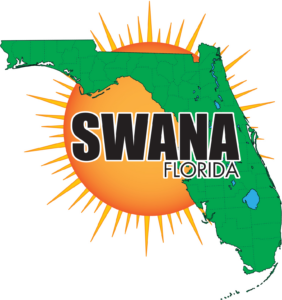Organizations Provide EPA with Best Practices for Lithium Battery Recycling
Organizations Provide Environmental Protection Agency (EPA) with Best Practices for Collection and Recycling Labeling Guidelines on Lithium Battery Recycling
(Washington, DC) – The Institute of Scrap Recycling Industries (ISRI), the Voice of the Recycling Industry™, National Waste and Recycling Association (NWRA), and Solid Waste Association of North America (SWANA) issued a joint letter to EPA Administrator Michael Regan citing best practices for safe recycling and labeling of lithium batteries. The letter is in response to the EPA’s Request for Information on the Development of Best Practices for Collection of Batteries to be Recycled and Voluntary Battery Labeling Guidelines.
Lithium batteries are being used to power everything from electronic devices to onboard automobile systems. However, the increased usage poses serious fire risks and safety challenges for consumers and the recycling industry.
“It is imperative that a clear path is delineated for the responsible recycling of batteries,” said ISRI President Robin Wiener. “By joining together to provide comments to the EPA, our organizations are offering solid solutions to minimize the risks of fire and injury that occur in recycling operations.”
The letter commends the EPA’s increased focus on the hazards that batteries pose in the waste and recycling streams. The organizations note that these hazards are increasing as more lithium-ion batteries get discarded and improperly placed in curbside residential waste or recycling collection containers and bags.
Once in the recycling or waste stream, these batteries become fire risks as they get mixed with tons of materials and placed in hot temperatures under significant compression.
“SWANA is very concerned about the continued uptick in fires at recycling facilities and other disposal sites, often caused by lithium-ion batteries,” stated David Biderman, SWANA Executive Director and CEO. “These fires threaten workers’ lives and operations at these facilities and undercut EPA’s ambitious National Recycling Strategy. We can’t recycle discarded items at a burnt-up materials recovery facility (MRF).”
The organizations recognized the need for a strong, ongoing public information campaign to alert consumers on how to properly dispose of batteries.
“Our goal is to lower the risk of fires caused from lithium-ion batteries,” said Darrell Smith, NWRA president and CEO. “We appreciate the opportunity to provide comments. We believe our recommendations will help reduce fires caused by these batteries at our recycling facilities.”
While most of these fires are the result of mismanagement of consumer lithium batteries, larger batteries such as those in electric vehicles also pose risks. The organizations recommended that the EPA develop best practices and labeling guidelines to include batteries of all sizes and chemistries. They also advised the EPA should proceed with a parallel track for best practices and labeling of the larger lithium-ion batteries.
###
The Institute of Scrap Recycling Industries, Inc. (ISRI)is the “Voice of the Recycling Industry™.” ISRI represents 1,300 companies in the U.S. and more than 40 countries that process, broker, and consume scrap commodities, including metals, paper, plastics, glass, rubber, electronics, and textiles. With headquarters in Washington, DC, the Institute provides education, advocacy, safety and compliance training, and promotes public awareness of the vital role recycling plays in the U.S. economy, global trade, the environment and sustainable development. Generating nearly $117 billion annually in U.S. economic activity, the scrap recycling industry provides more than 506,000 Americans with good jobs.
The National Waste & Recycling Association (NWRA) represents the private sector waste and recycling services industry. Association members conduct business in all 50 states and include companies that manage waste, recycling and medical waste, equipment manufacturers and distributors, and various other service providers. For more information about NWRA, please visit www.wasterecycling.org.
The Solid Waste Association of North America (SWANA) is an organization of more than 10,000 public and private sector professionals committed to advancing from solid waste management to resource management through their shared emphasis on education, advocacy, and research. For close to 60 years, SWANA has been the leading association in the solid waste management field. SWANA serves industry professionals through technical conferences, certifications, publications, and a large offering of technical training courses.
For more information or to schedule an interview, please contact:
Vicki Morgan
Institute of Scrap Recycling Industries, Inc.
(202) 975.9042
vmorgan@isri.org
Brandon Wright
National Waste and Recycling Association
bwright@wasterecycling.org
(202) 364.3706
Amanda Suntag
The Solid Waste Association of North America
(240) 494.2238
asuntag@swana.org


